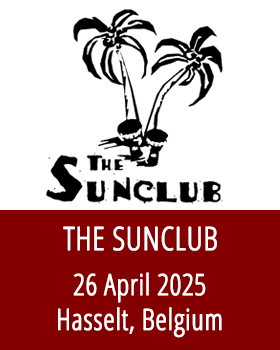Dana International
Dana was born in Israel and grew up in Tel Aviv as a boy named Yaron Cohen. He was a gifted child and an excellent student who sang in the school choirs. In adolescence, he started to feel that something was different about him. That he’s not like everyone else. He started to discover the Tel Aviv nightlife, and there, in the dark nightclubs that allow everyone to be who they really are, the transformation started; a transformation that began with a recognition, an understanding, and ended three years later when the shy teenage boy became a beautiful girl, Dana.
At the age of 20, Dana started to perform in Tel Aviv nightclubs and was very popular amongst the crowd. A year later, she released a song from her club performances, Saida Sultana to the radio stations, and the song immediately became a big hit. This success led to the recording of a full dance album, and the second hit released from it was Dana International. Ever since, this name stuck with her, and a couple years later it became reality.
In 1994, Dana released her second album, Umpatampa. The album became a big success, sold platinum records and Dana was chosen as Israel’s singer of the year. She participated in the Israeli Pre-Eurovision Song Contest and achieved second place. She tells that that night, in which she didn’t win, was one of the saddest in her life: “I cried all night and I felt terrible. If only an angel would have visited me and whispered in my ear that two years from now, I’m going to win the real thing, it could have spared me so many tears”. Two years later, her third album, Maganuna came out, and Dana set her status as one of the successful singers in Israel.
In 1998, she was chosen to represent Israel in the Eurovision Song Contest with the song Diva, written by Yoav Ginai and Tzvika Pick. She took the first place and turned overnight into an international star. Dana’s victory had a strong impression on the world, and she became a cultural icon. In Israel, on the night of the victory, thousands of people celebrated on the streets, and Dana completed the cultural revolution she started with her first album; a symbol of liberalism and human rights.
In the following years, Dana released two international albums, and went on a tour around the globe; from Japan to the United States, from Australia to England. She especially succeeded in Eastern Europe, left Israel and lived on the road, singing and performing all around the world. In 2003 she returned to Israel and released a new album in Hebrew. In 2005, she released the album HaHalom HaEfshari and in 2007, the album HaKol LeTova with the hits Love Boy and Seret Hodi became the greatest hits of that year in Israel. She also wrote the song that represented Israel in the Eurovision of that year, Keilu Kan, performed by Boaz Mauda.

































